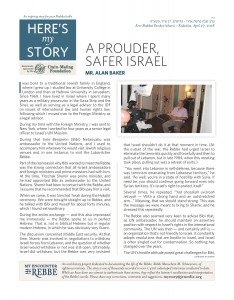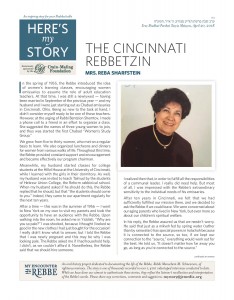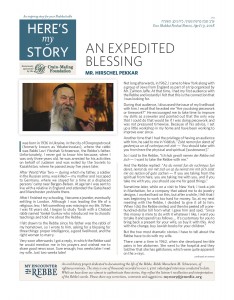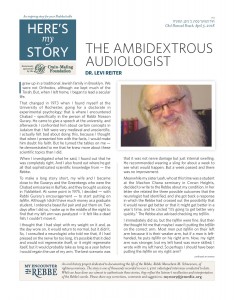A Prouder, Safer Israel
I was born to a traditional Jewish family in England, where I grew up. I studied law at University College in London and then at Hebrew University in Jerusalem. Since 1969, I have lived in Israel where I spent many years as a military prosecutor in the Gaza Strip and the Sinai, as well as serving as a legal advisor to the IDF on issues of international law and human rights law, following which I moved over to the Foreign Ministry as a legal advisor.
During my time with the Foreign Ministry, I was sent to New York, where I worked for four years as a senior legal officer to Israel’s UN Mission.
During that time Benjamin (Bibi) Netanyahu was ambassador to the United Nations, and I used to accompany him whenever he would visit Jewish religious venues and, in one instance, to visit the Lubavitcher Rebbe.
Part of the real reason why Bibi wanted to meet the Rebbe was the strong connection that all Israeli ambassadors and foreign ministers and prime ministers had with him. At the time, Yitzchak Shamir was prime minister, and he had appointed Bibi as ambassador to the United Nations. Shamir had been in contact with the Rebbe, and I assume that he recommended that Bibi pay him a visit.
When we came, it was Simchat Torah during the Hakafot ceremony. We were brought straight up to Rebbe, and he talked with Bibi and myself for about forty minutes, which I found extraordinary.
During the entire exchange – and this also impressed me immensely – the Rebbe spoke to us in perfect Hebrew. That is, not in biblical Hebrew but in regular modern Hebrew, in which he was obviously very fluent.
The discussion concerned Middle East security. At that time, Shamir was involved in negotiations to withdraw Israeli forces from Lebanon, and the question of whether Israel would withdraw or not was still open. Ultimately, Israel did withdraw, but the Rebbe was very insistent that Israel shouldn’t do it at that moment in time. (At the outset of the war, the Rebbe had urged Israel to eliminate the terrorists quickly and forcefully and then to pull out of Lebanon, but in late 1984, when this meeting took place, pulling out was a retreat of sorts.) (more…)








